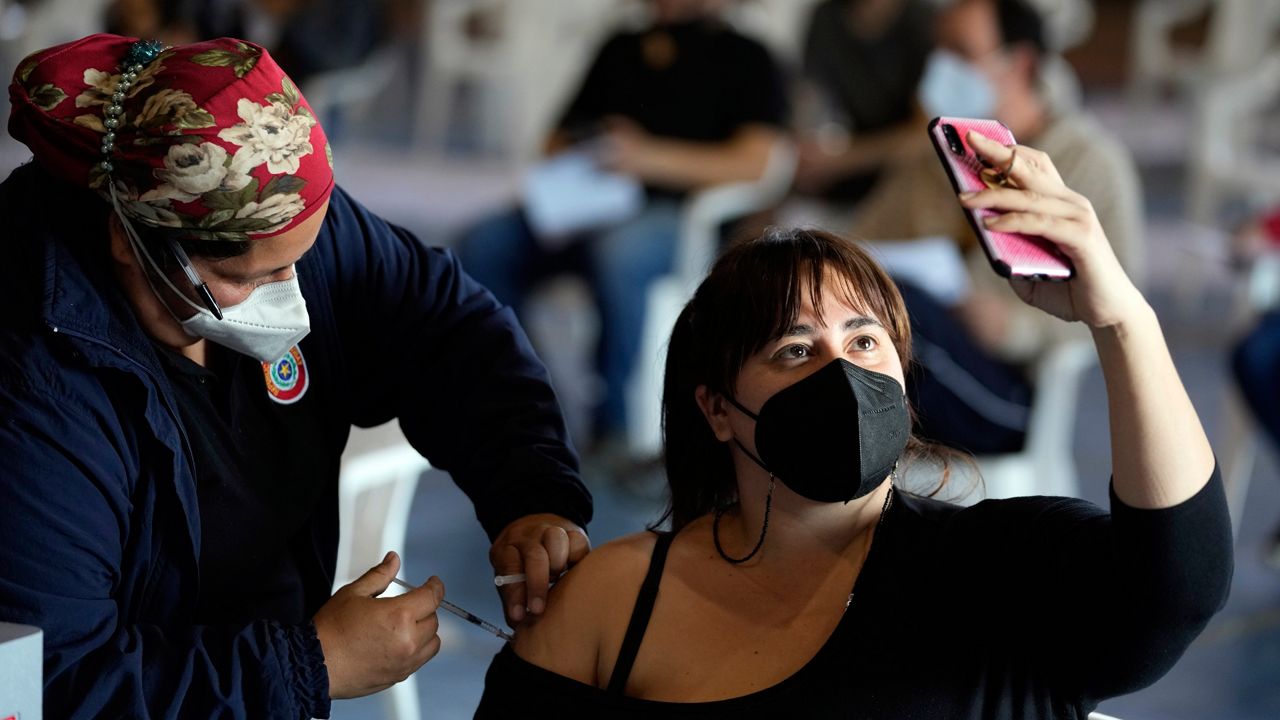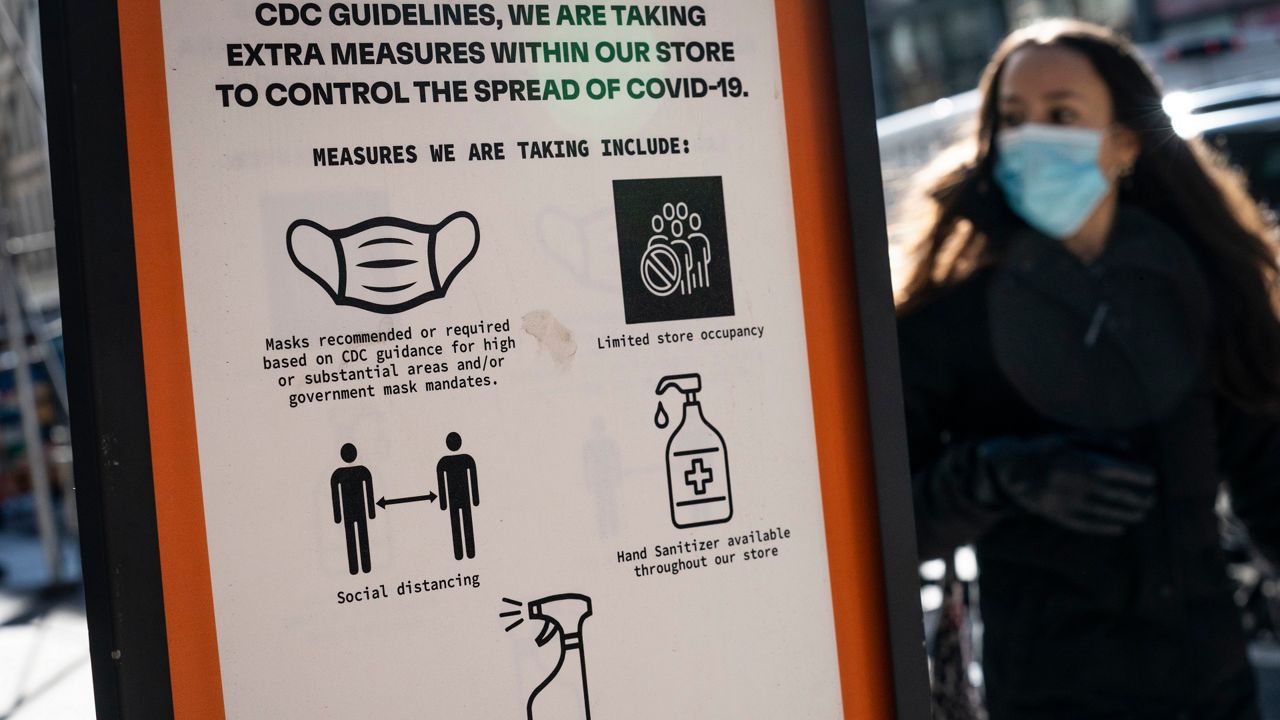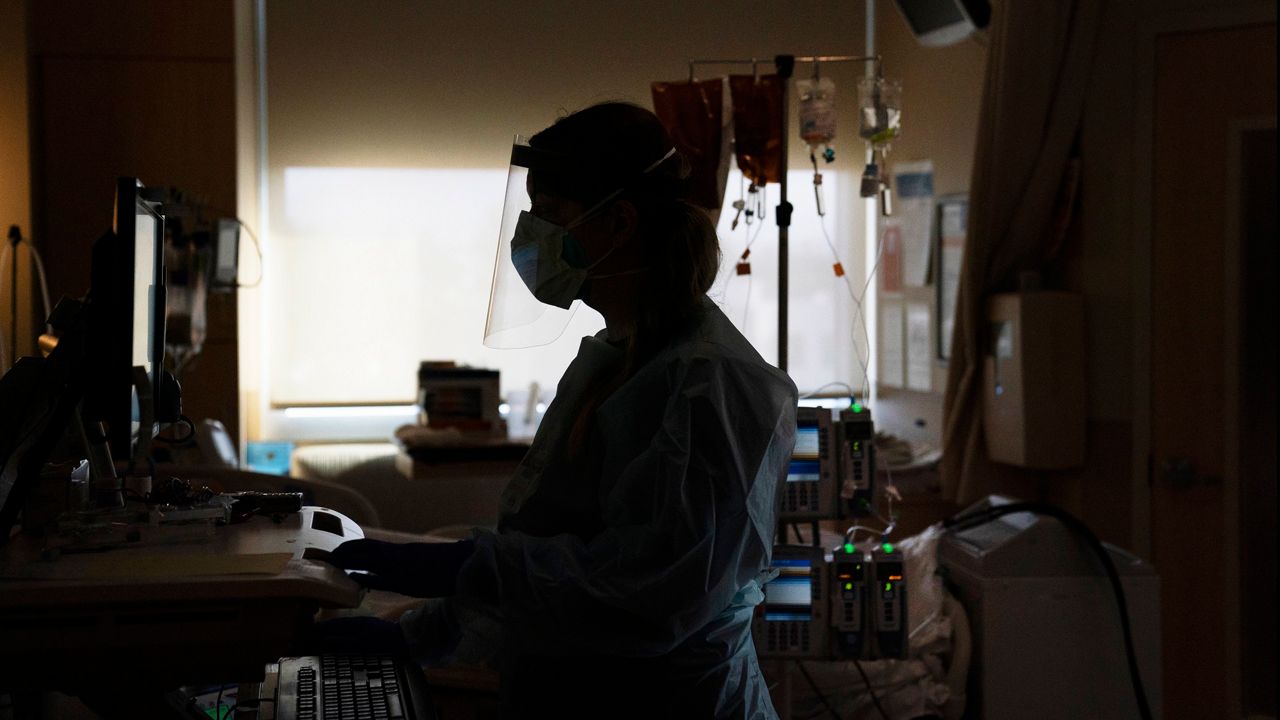MILWAUKEE — If your social media feeds are swamped with talk about the COVID-19 vaccines — you’re not alone.
What You Need To Know
- Around one-fifth of Americans are getting "a lot" of information about COVID-19 vaccines on social media, per recent surveys
- Being aware of bad brain habits, like confirmation bias, can help us spot misinformation online, experts say
- Misinformation tends to play on strong emotional responses like anger and fear
- Science is a constantly evolving process, so getting the most up-to-date information is key
According to a new survey from the Pew Research Center, almost half of Americans are getting vaccine news through social media. Around 30% said they’re getting “some” vaccine information this way, while 18% said they’re getting “a lot” of it.
There’s still a lot of bad vaccine information floating around online, though, said Dominique Brossard, professor and chair of UW-Madison’s Life Sciences Communication department. Sometimes it might be intentionally misleading. Other times, it’s shared with good intentions.
In any case, being more conscious while you’re scrolling can help make sure you’re getting the best science-based information, she said. Here, we offer some tips to navigate the tricky world of social media in the age of COVID-19.
Know your brain
When it comes to sorting out the good information from the bad, we can’t always trust our gut feelings, Brossard said.
“We tend to actually believe things that sometimes we shouldn’t,” she said. “And that’s normal, because we’re human.”
For one, our brains are subject to confirmation bias, Brossard said. Naturally, we want to take in the news that is in line with what we already think or feel, and ignore the information that challenges those beliefs — no matter if it’s credible.
We also tend to use values as a filter to make sense of the unknown, Brossard said. For example, if someone comes from the same political party or religious background as us, we’re willing to believe what they say — but if we see them as the other side of the “us and them” equation, we won’t listen.
Building up “cognitive literacy” — basically, being aware of how our brains might be leaning on these unhelpful habits — can help us be better at sorting out what’s true, Brossard said.
“Not everyone will be aware of their biases. It’s hard,” she said. “But at least you can start questioning yourself: ‘Why do I believe this information?’”
Check your emotions
Keeping track of how we’re feeling can also be a useful tool for weeding out bad vaccine information, said Sedona Chinn, an assistant professor in the UW-Madison Life Sciences Communication department.
Misinformation in general tends to play off of strong emotions, because those feelings drive more engagement on social media, Chinn said.
“The messages that you see that really provoke a lot of fear, or really provoke a lot of anger — that really make you mad, and like you want to go after somebody,” Chinn said, “that's one sort of tactic that people who spread misinformation use.”
And when we get emotional, we might also lean on unhelpful psychological tricks to try to feel better.
When we’re angry, we might rely more on mental shortcuts instead of thinking critically about information, Chinn said. When we’re fearful, we might try to avoid news about a topic altogether.
The pandemic has put all of us under a lot of stress, she said — which can make it extra challenging to navigate these conversations.
“This has become such a charged topic, both politically (and) emotionally,” Chinn said. “We all have some sort of baggage we’re bringing to it.”
But again, just being aware that some posts may be trying to rile you up — and stopping to take another look at something that makes you feel really mad or afraid — can help you stop the spread of misinformation, she said.
Get a second opinion (and a third, and a fourth, and…)
Getting vaccine news on social media isn’t always a bad thing. In fact, having an “omnivorous” media diet, with multiple types of news sources, can be helpful, Chinn said.
But it’s healthy to be a little cautious of posts you see online, she said, especially because there is a lot of false (or at least not-totally-true) information out there.
“It’s important to be skeptical of the information that comes especially from social media, and to be a conscious consumer,” she said. “It’s a hard ask, because a lot of times you just want to lay back on the couch and scroll through Facebook.”
Try to figure out where the information in a post is coming from and see if it’s credible, she recommended. And, of course, you don’t have to rely on just one source: Brossard said it’s helpful to “triangulate” information from multiple trusted sources.
On the national scale, the Centers for Disease Control and Prevention is the go-to source for vaccine information, Brossard said. Local health officials — like the Department of Health Services in Wisconsin — are important sources as well, she said.
When you’re making decisions related to COVID-19 or the vaccines, you can also ask your doctor or another health professional for their science-backed advice, Brossard suggested.
In Wisconsin, you can call 211 or 877-947-2211 to get answers to vaccine questions, according to the DHS.
Understand that science is a process
Another challenge is that when it comes to science in general — and COVID-19 in particular — “the best available information that we have is evolving,” Chinn said.
“We’re putting so much effort and resources into learning about coronavirus, and learning more about the variants, and learning more about the vaccines,” she said, “that the things that we assumed to be true about it, maybe were proven to be false three months later.”
That means it’s important to make sure the news you’re reading online is up-to-date, because new research and guidance is constantly coming out about COVID-19.
For example, U.S. health officials initially didn’t recommend wearing masks during the pandemic — but when more evidence came out about how the virus spread, they updated their guidance. And the CDC at first didn't include pregnant women in its COVID-19 vaccine recommendation, but this summer urged the group to get their shots based on more data that vaccination was safe during pregnancy.
It can be frustrating to try to make big decisions based on information that’s not set in stone, Chinn acknowledged.
But that’s also how the scientific process moves forward, Brossard said: Through small steps rather than “breakthrough discoveries.”
“It’s not that one day we don’t know anything, and the next day we know everything,” she said.
The key is to use the best evidence that’s available right now to figure out the best course of action, the researchers agreed.
And be wary of bad actors who might try to fill in “data deficits” — the spaces where we still have lots of questions and not enough answers — with bad information, First Draft News suggests.
Don’t be afraid to disagree — politely
Misinformation is not black and white, Chinn said. A lot of people might share bad or misleading information with good intentions.
If someone in your circle posts something that isn’t true, she said, you might want to “gently and kindly” try to share the correct information, like by pointing to a reputable source in the comments.
Even if you aren’t able to change the sharer’s mind, a polite fact check might help others who see the post get the correct info, Chinn explained. Some research suggests that seeing a comment with a reputable source can help correct information from a misleading post.
Experts at the online information source Dear Pandemic recommend telling a “truth sandwich”: Leading with a fact, addressing the myth and countering with another fact.
And an advisory from the U.S. Surgeon General stresses the importance of having empathy for your misinformed loved ones — listening to understand them, not to judge them.
You still have to “pick your battles,” Brossard said, and fighting with people head-on may not be the most productive approach.
“We've all been through a really hard year. And we've all been impacted in some way by this pandemic, and we want it to end,” Chinn said. “You aren't going to get anywhere trying to persuade someone to not believe misinformation, if you don't understand why they're believing it.”









